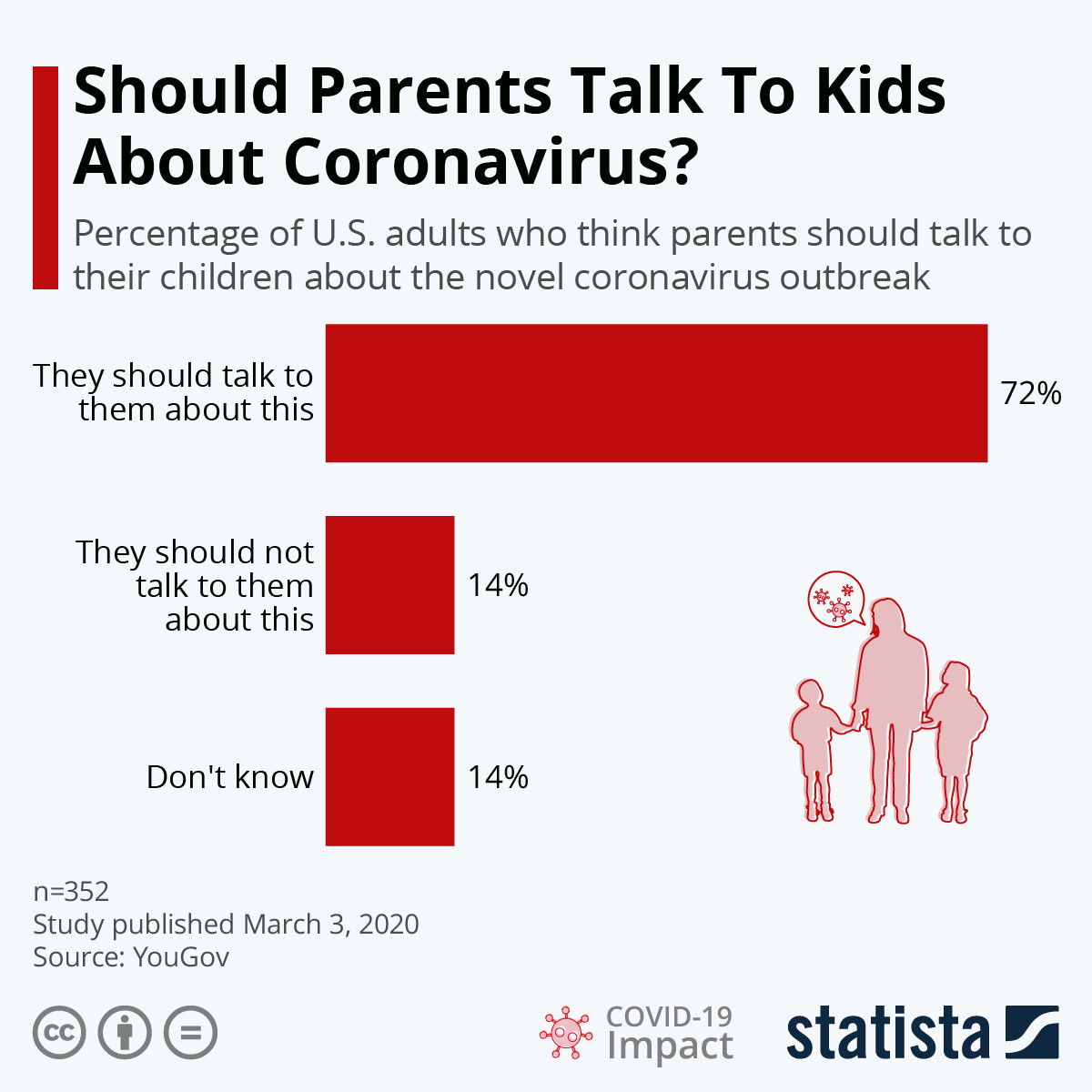How to talk to your children about Coronavirus

They already know something's up. Image: MI PHAM on Unsplash

Explore and monitor how COVID-19 is affecting economies, industries and global issues

Get involved with our crowdsourced digital platform to deliver impact at scale
Stay up to date:
COVID-19
- Children already know something about the virus.
- Parents need to reassure and make their message age-appropriate.
- Anxiety can be expressed through bad behaviour.
Schools around the world are reacting to COVID-19, or Coronavirus. At the very least, they are putting in place measures to improve hygiene, while in some parts of the world they are closing their doors completely. In any case, children, even very young ones, are aware something unusual is happening. So how should parents talk to them?
Laura Markham, the author of parenting guide Peaceful Parent, Happy Kids, has the following advice:
1. Ask them what they've already heard.
"That allows you to respond reassuringly to any fears your child is worrying about and correct rumors that aren't true. ('No, it's not true that everyone who gets the virus dies; in fact most people get a mild flu and recover quickly.') Always start by listening, and acknowledging your child's worries."
2. Reassure and give age-appropriate information.
For younger children, your main message should be: "You are safe. Grownups have got this covered." And tell them what we can all do now is make an effort not to unwittingly transmit germs and spread the virus.
If you don't know the answer to a question, tell them: "That's a good question. I'm not sure what the answer is. But let me find out for you!" Consult an authoritative source such as the World Health Organization without your child there, "so you can frame your answer in a reassuring way, once you have the facts", Markham says.
3. Turn off your TV.
The news can be scary - under-10s don't need to see it.
4. Teach hygiene.
Teach about handwashing and trying not to touch your face. But acknowledge that habits can be hard to establish. "We can do hard things, if we support each other!"
5. Empower kids.
"Research shows that when we feel frightened or sad in response to news, it's helpful to take some kind of positive action to make things better," Markham notes. She suggests encouraging children to donate money to charity, giving toys to a local hospital, or just remembering people struggling with the illness in their thoughts and prayers.
6. Be aware that your child might well be worried that you will die.
Markham says this fear can be addressed by saying: "You seem to be having a hard time lately. I know that some kids are worried about their parents, with this virus going around. I want you to know that I am taking very good care of myself ... I expect to live until I am a very old person -- you will be all grown up and have children of your own and I will be their grandparent!"
Children's anxiety can often be expressed though bad behaviour. A good way to tackle this can be through play and laughter. "So if your child is misbehaving or seems stressed, initiate some roughhousing to get everyone laughing. Laughter changes the body chemistry, reducing stress hormones, and will help your child's fears melt away," Markham argues.
7. Work out any worry you have about this BEFORE talking with your kids.
If you are panicking, it's time to refer to the best sources such as the WHO for non-alarmist and helpful information. Markham writes: "(T)here are plenty of sources that are using this health challenge to create general fear. You're choosy about who you spend time with. Be choosy about who you let influence your mindset."
What is the World Economic Forum doing about the coronavirus outbreak?
8. Make lemonade.
If your child's school closes, "the idea of being cooped up endlessly with our children is daunting." Markham suggests you treat it as an unplanned staycation.
"(M)ost parents ... say that they wish they had more time to spend as a family doing wholesome activities like cooking together or doing art or other family projects. If your family ends up spending more time at home together, why not look at this as an opportunity to strengthen and sweeten your family relationships?"
More details can be found on Markham's website, Aha! Parenting.
Don't miss any update on this topic
Create a free account and access your personalized content collection with our latest publications and analyses.
License and Republishing
World Economic Forum articles may be republished in accordance with the Creative Commons Attribution-NonCommercial-NoDerivatives 4.0 International Public License, and in accordance with our Terms of Use.
The views expressed in this article are those of the author alone and not the World Economic Forum.
Related topics:
The Agenda Weekly
A weekly update of the most important issues driving the global agenda
You can unsubscribe at any time using the link in our emails. For more details, review our privacy policy.
More on Health and Healthcare SystemsSee all
Katherine Klemperer and Anthony McDonnell
April 25, 2024
Vincenzo Ventricelli
April 25, 2024
Shyam Bishen
April 24, 2024
Shyam Bishen and Annika Green
April 22, 2024
Johnny Wood
April 17, 2024






